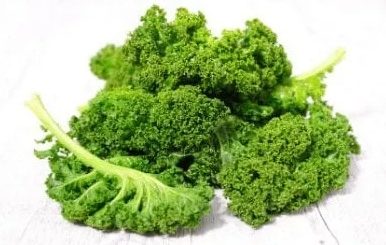What is Glutamine? What are the benefits?

Glutamine is an important amino acid for the human body. Amino acids serve as the building blocks of proteins and play a role in many aspects of body functions. It has important functions, especially the protection of intestinal cells, the immune system and muscle tissues. Although the body can generally synthesize its own glutamine, in some cases (for example, serious illnesses, traumas, surgical interventions or heavy exercise), the need may increase and in this case external supplements can be used.
Decreased glutamine levels can often be observed with excessive exercise, burns, surgery or infections. Normally, a healthy individual can produce adequate glutamine naturally and obtain it through a balanced diet. However, in special cases or needs, supplements may be used; however, decisions regarding the use of these supplements should be made in consultation with a healthcare professional.
What Does Glutamine Do?
Glutamine plays important roles in the body as an amino acid. Its basic functions can be listed as follows:
Muscle Protein Synthesis: Plays an important role in the growth and repair of muscle tissues. It can help strengthen and rebuild muscle cells by participating in protein synthesis processes.
Intestinal Health: Intestinal cells use it as an energy source. This can contribute to the protection and repair of the intestinal mucosa, which supports intestinal health.
Immune System Support: Serves as the energy source of immune cells. It can help strengthen the immune system and increase resistance to infections.
Acid-Base Balance: It can stabilize pH levels by regulating the acid-base balance in the body.
Carbohydrate Metabolism: It plays an effective role in carbohydrate metabolism. The body can use glutamine to meet its energy needs.
May Help in Stress Situations: In stressful situations, such as excessive exercise, surgery, or serious illness, the body may increase its need for glutamine. Supplements may help reduce the negative effects associated with these conditions.
Injury and Burn Healing: It may play an important role in the healing of injuries and burns. It can support the repair and healing of tissues.
How to Use Glutamine?
Glutamine use varies depending on the individual’s health status, goals, and reason for taking the supplement. Supplements, usually available in powder or capsule form, can have daily dosages of 5 to 20 grams and can be taken before or after exercise, with a meal, or at bedtime.
This dosage and timing can be adjusted based on the individual’s goals and intended use. It is important to consult with a healthcare professional before using glutamine supplements, considering your health status, specific circumstances, and the ingredients they contain.
Paying attention to hydration and using it in conjunction with a balanced diet can increase the effectiveness of glutamine supplements. Since everyone’s needs are different, it is important to seek expert advice for use appropriate to your personal situation and needs.
When to Use Glutamine?
Glutamine use varies depending on the individual’s goals, health status, and personal needs. Common usage times:
Pre-Exercise: Use before exercise has the potential to increase muscle protein synthesis and energy levels. This can help support performance during training.
Post-Workout: Taking it after exercise may help speed muscle repair and reduce exercise-induced stress. It can also contribute to supporting the immune system after training.
Before Bed: Taking glutamine before bed can support muscle repair throughout the night and help maintain energy levels in the body.
On an empty stomach or with food: It can be taken on an empty stomach or with food. When taken on an empty stomach, absorption may be accelerated; If taken with food, it may interact with other nutrients.
Stressful Situations: Using supplements during periods of serious illness, trauma, surgery, or intense exercise can help support the body and compensate for possible losses.
Since everyone’s needs are different, usage times may vary according to individual preferences and purposes. It is important to consult with a healthcare professional before use to determine appropriate dosage and timing.
What are the symptoms of glutamine deficiency?
Glutamine deficiency usually occurs as a result of the body’s inability to meet its needs or due to special circumstances. Symptoms of glutamine deficiency may include:
- In case of deficiency, muscle weakness and wasting may occur.
- The immune system may weaken and the susceptibility to frequent infections may increase.
- Intestinal problems, sensitivity and irritation may occur.
- There may be a feeling of general fatigue and weakness.
- The wound healing process may slow down.
- The acid-base balance in the body may be disrupted, causing a feeling of imbalance.
- It may cause tenderness, dryness, or pain in the mouth and throat.
- Concentration problems, memory problems and mental confusion may occur.
What are the harms of glutamine?
Although glutamine supplements are generally considered safe, they may have some potential harms with overuse or under certain circumstances. Intake of high doses of glutamine may cause gastrointestinal issues, kidney problems, and effects that have been suggested to aggravate symptoms in individuals with bipolar disorder.
Additionally, caution may be necessary for people who may have allergic reactions to glutamine and those taking certain medications. Drug interactions and individual health conditions may require consultation with a healthcare professional before using glutamine supplements.











